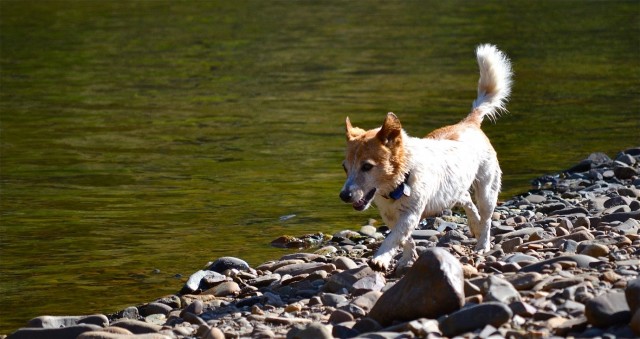
Some schools of yoga, like some streams of Buddhism, seek to return us to our “natural state of being.”
There’s something very appealing about this.
I love the idea that child’s pose and happy baby are about relearning things that every baby can do, things that we have lost through habituation and socialisation in a society with chairs.
I love the Buddhist idea that we all have a “Buddha nature”—an intrinsic compassion, love, ahimsa (nonviolence) and naiveté—that just needs to be nourished and nurtured to be realised. It’s a beautiful idea—an excellent guiding principle. It teaches us that we can all achieve these states of bliss if we do the right work.
Oh! Wait a minute… What’s that about work? Weren’t we talking about “what comes naturally”?
I was on a retreat, when we came out of some sequence, into tadasana (mountain pose), and the teacher said: “now just do what comes naturally.”
What was coming naturally to me right then was a very strong urge to have my way with the gorgeous woman on the next mat. In my head, I could hear Nine Inch Nails wailing “I wanna f*ck you like an animal.” What was coming naturally to me right then was preparation to fight to the death whoever tried to stop me from being animal with her.
I may well have a Buddha nature, but I also have a nature “red in tooth and claw.” As do we all. This is not an either / or proposition—I cannot wish away, or think away, my animal nature.
“What comes naturally” may be a good guide to how we might want to reclaim our range of movements—but we need to be careful about putting it forward as a moral precept.
Our religious and spiritual traditions teach that we are intrinsically good and blessed—we have the capacity to do the right thing; to love and respect one another (and / or god). But they also recognize that we “naturally” fall short of those ideals.
We needn’t buy into original sin, or the fall from grace, to find that grace does not “come naturally.”
Our Buddha nature does not shine through and override all other instincts and drives.
It comes to the fore through right-effort. If it’s natural, it must nevertheless be nurtured.
This touches one of the oldest debates in philosophy. Are we born good, but corrupted by society? Or are we born brutal, and refined by society?
This was a hot topic among Confucius’s disciples around 300 bce. It can be found in the Socratic dialogues and in Vedic texts from around the same time.
The most convincing response is that it is not an either / or question. We are born both good and evil. Through our education and experience, one disposition might come to dominate, but it is never once and for all. The other tendency will always be present, seeking opportunities to assert itself.
This is perhaps Freud’s most important contribution to psychology. We all have the capacity, the urge, the drive to do violence; to be perverse; to do harm; to be animal.
I didn’t act on the desire to “have my way” with the woman on the next mat. Not because I fear the consequences and repercussions—or not only for that reason, anyway, but because I have developed empathy and compassion: my concern for her well-being overrides my basest instincts.
It doesn’t negate those instincts, though! Freud’s other great insight is that repression is counter-productive—you cannot make this shit go away. Pretending like you don’t have a violent, aggressive or sexual animal nature only leads to it being expressed in unconscious and undesirable ways.
And no, this is most definitely not an ode to some unrestrained aggressive hyper-masculinity, or any other knee-jerk reaction to self-restraint.
It’s what Jung called “owning your own shadow”—recognizing your animal nature so that you can find ways of directing it, of dealing with it, of expressing it, without doing harm to either yourself or others.
Of course, I know I have to take the yoga teacher’s instruction in context. I know he wasn’t invoking the Nine Inch Nails. I know he was merely suggesting that I should allow my body to move as it would “naturally”, without trying to control it.
But his instruction prompted me to reflect on my animal nature, and allowed me an opportunity to rejoice in the fact that wild animals and happy babies can snuggle peacefully.

Author: Karl Smith
Editor: Renée Picard
Images: author’s own


 Share on bsky
Share on bsky




Read 0 comments and reply